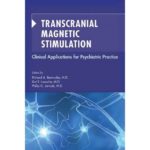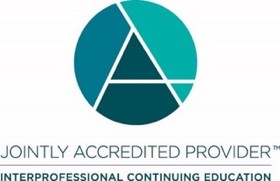Course Summary
Psychiatric disorders represent a significant and growing problem for society. While many patients are effectively treated with pharmacotherapy, psychotherapy, or a combination of the two, up to 30% with mood and anxiety conditions (Bystritsky 2006; Rush et al. 2006) do not respond to these standard treatments. In October 2008, the first transcranial magnetic stimulation (TMS) system was cleared by the U.S. Food and Drug Administration (FDA) for the treatment of adult patients with major depression who had not responded to one antidepressant medication. This marked the beginning of one of the most innovative treatment developments for psychiatry in the last decade. TMS allows the psychiatrist to modulate specific neural networks which affect mood, thinking and behavior. In 2018, the first TMS system was cleared by the FDA for the treatment of patients with OCD who have not responded to medication and psychotherapy (Carmi et al. 2018). Now, patients have access to this ground-breaking form of neuromodulation at numerous centers in the United States and there is broadening clinical applications into other psychiatric conditions as well as expansion in insurance coverage.
First use of ketamine as an antidepressant demonstrated a 50% response rate (Berman 2000). In March 2019, esketamine nasal spray used in conjunction with an oral antidepressant, was approved by the U.S. Food and Drug Administration (FDA) for the treatment of depression in adults who have not benefitted from other antidepressant medication. Esketamine is thought to lead to growth through the creation of new connections in the brain by working on the glutamate system in addition to other systems.
Despite the growing availability of these innovative options, many psychiatrists are unsure about how to best utilize TMS and esketamine. This course provides practitioners with practical information for the management of patients who are candidates for both TMS therapy and esketamine. The course speakers are clinician-researchers with extensive knowledge about the clinical applications of TMS and esketamine. The course reviews mechanisms of action, applications for depressed patients and other psychiatric conditions, patient selection for the TMS and esketamine, as well as a thorough review of one of the current FDA cleared TMS Therapy systems. Teaching techniques will include didactics, case discussion, and panel discussion. Each attendee will receive a copy of Transcranial Magnetic Stimulation: Clinical Applications for Psychiatric Practice (Bermudes et al. 2018).
Part 1 of the course reviews the development of TMS as an integral treatment for patients with treatment resistant mood disorders. As well as a review on the effectiveness of esketamine and how it is administered. Additionally, each attendee will get trained in motor threshold determination on an FDA cleared TMS systems.
Part 2 of the course incorporates new research on treatment resistant neuropsychiatric conditions and the role of TMS and esketamine as key treatment modalities. In summary, this course provides both an update on the present clinical role of TMS and esketamine and a road map to its potential future.
References:
1. Bermudes, RA, Lanocha, KI, Janicak, PG. Transcranial Magnetic Stimulation: Clinical Applications for Psychiatric Practice. Arlington, VA: American Psychiatric Association Publishing, 2018.
2. O’Reardon JP, et al. “Efficacy and safety of transcranial magnetic stimulation in the acute treatment of major depression: a multisite randomized controlled trial.” Biol Psychiatry. 2007 Dec 1;62(11):1208-16.
3. Yechiel Levkovitz, et al. “Efficacy and safety of deep transcranial magnetic stimulation for major depression: a prospective multicenter randomized controlled trial.” World Psychiatry 14.1 (2015): 64-73
4. Carmi, Lior, et al. “Efficacy and Safety of Deep Transcranial Magnetic Stimulation for Obsessive-Compulsive Disorder: A Prospective Multicenter Randomized Double-Blind Placebo-Controlled Trial.” Am J Psychiatry 2019; 176:931-938.
5. Rush, A. John, et al. “Acute and longer-term outcomes in depressed outpatients requiring one or several treatment steps: a STAR* D report.” American Journal of Psychiatry 163.11 (2006): 1905-1917.
6. Ella J. Daly, et al. “Efficacy and Safety of Intranasal Esketamine Adjunctive to Oral Antidepressant Therapy in Treatment-Resistant Depression A Randomized Clinical Trial.” JAMA Psychiatry. 2018;75(2):139-148.
Course Objectives and Topics
Objectives
- Explain the mechanism of action of TMS.
- Understand the efficacy of TMS for the treatment of major depression.
- Identify the risks and side effects of TMS.
- Review the specifications of FDA-cleared TMS systems.
- Identify appropriate patients for TMS.
- Demonstrate how to determine a resting motor threshold on an FDA cleared system.
- Understand Mechanism of Action of ketamine
- Research studies on the effectiveness esketamine
- Learn how ketamine/esketamine are administered and observed.
- Understand the typical patient experience with treatment
Topics
- Transcranial Magnetic Stimulation
- Major Depression
- Treatment Resistant Depression
- Esketamine
Materials
You will receive a copy of Transcranial Magnetic Stimulation. Clinical Applications for Psychiatric Practice. Edited by Richard A. Bermudes, M.D., Karl Lanocha, M.D., and Philip G. Janicak, M.D.

Workshop Dates
TBD
Questions?
For questions regarding registration or course agenda, please contact Miriam Mina at mmina@mindfulhealthsolutions.com
Physicians (ACCME) Credit Designation

This course will focus on Treatment Resistant Depression, Transcranial Magnetic Stimulation, Motor Threshold Determination and Esketamine (12 Hours of CME for In-person, 6 Hours of CME for Virtual)
Featured Faculty
Ian A. Cook, MD
Philip G. Janicak, MD
Karl I. Lanocha, MD
Toby Marton, MD

